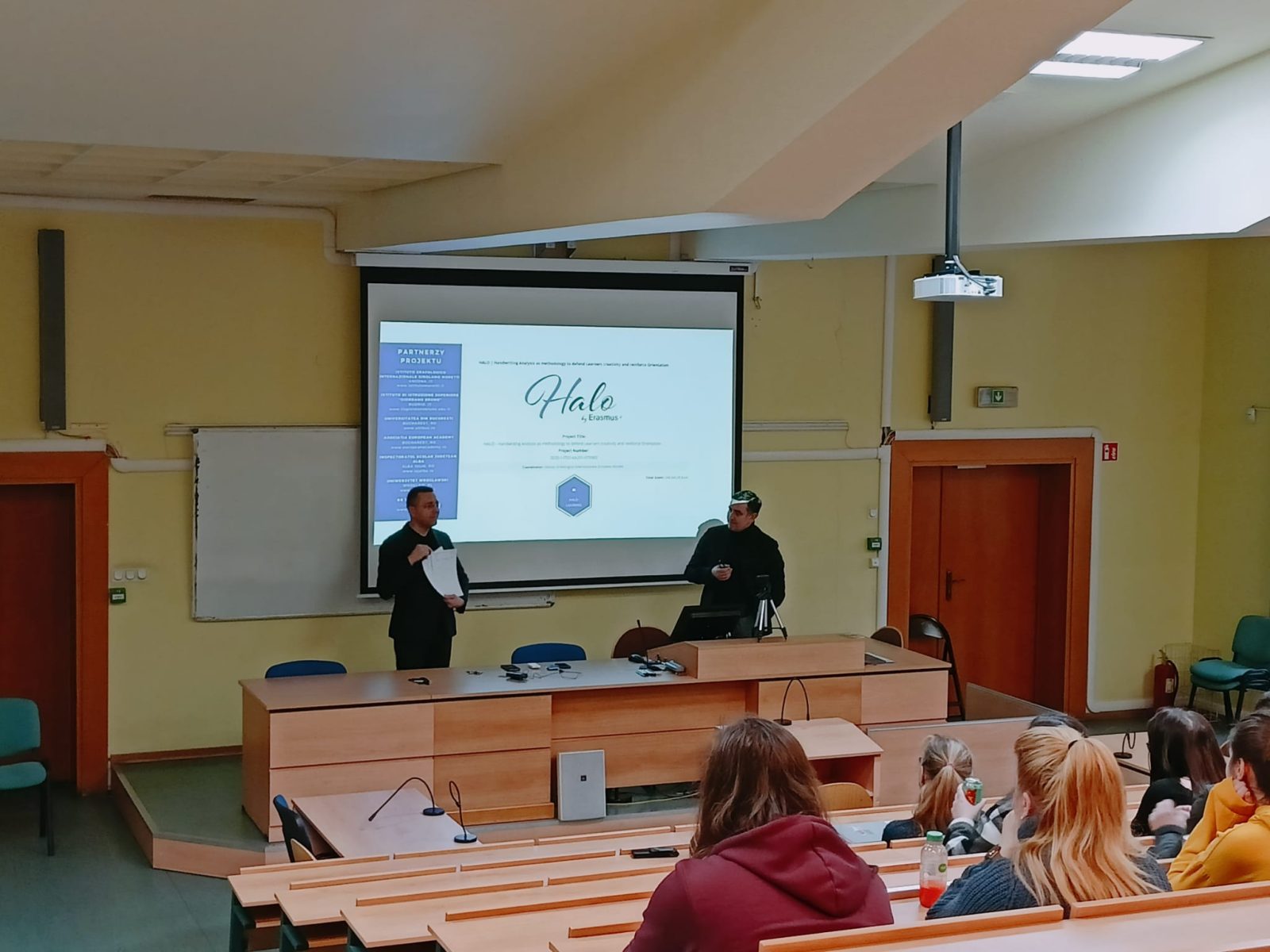
Handwriting Project for the criminology students
On 21 January and 4 February 2023, students of criminology, as part of the subject of experimental criminology, participated in the Handwriting Project and an online course realised as a part of the international European Union grant Project HALO – Handwriting Analysis as methodology to defend Learners creativity and reinforce Orientation. The meetings were conducted by the taff of the University of Wrocław’s Faculty of Law, Administration and Economics, prof. Maciej Szostak, dr. Rafał Cieśla, and dr Jolanta Grębowiec-Baffoni from Italy, who are responsible for the implementation of the EU project.
We would like to thank everyone for their participation and commitment to the experiment!
Read more about the EU HALO Project:
Handwriting Analysis as to defend Learners creativity and reinforce Orientation – in abbreviation HALO – is an international research project funded by the European Union, which lasts from 2020 to 2022/2023. Its contractors are: Istituto Grafologico Internazionale “G. Moretti” at the University of Urbino “Carlo Bo”, Italy (project leader), the Faculty of Law, Administration and Economics of the University of Wrocław, Poland (project lead partner) and the Faculty of Philosophy of the University of Bucharest, Romania (project partner), as well as selected students from Polish, Italian and Romanian secondary schools.
Responsible for the implementation of the project by the University of Wrocław are:
dr Rafał Cieśla from the Department of Forensic Science at the Faculty of Law, Administration and Economics of the University of Wrocław – project manager and coordinator for international scientific research and implementation of scribal methodology in educational practice,
prof. dr hab. Maciej Szostak, Head of the Department of Criminology and Security Studies, Faculty of Law, Administration and Economics, University of Wrocław – coordinator for international scientific research and implementation of the methodology of handwriting in educational practice,
dr Jolanta Grębowiec-Baffoni – international subject academic expert cooperating with the project leader, lead partner and other project partners.
The main purpose of the EU HALO Project is to cover three thematic branches. The first concerns the implementation of a didactic tool for the teaching staff of students aged 14 to 16, which allows to recognize certain aspects of the pupil’s personality traits by analysing their handwriting and drawings and to implement an individual teaching plan according to their abilities and needs. Didactic tools for the teaching staff (also for parents and guardians) will be implemented in the form of textbooks with appendices for exercises and online courses in Italian, Polish, Romanian and English. The second branch concerns the solidification of graphology as a scientific field of study, as a field enabling to acquire the knowledge of certain psycho-physical characteristics of the writer, supporting the individual in the educational, psychological and social fields. The third branch concerns the submission of a proposal to UNESCO for the recognition of handwriting as an intangible heritage of humanity, evidenced by the results of research and cooperation between other nations participating in the project. The University of Wrocław, as the lead partner of the EU HALO Project, with its extensive and comprehensive experience in handwriting research, is responsible for coordination of the research and preparation phase of the substantive content, which will be implemented in textbooks and the online course. Additionally, the University of Wrocław is responsible for the scientific supervision of the content developed as a part of the project, and collection and analysis of workshop reports and feedback from associated partners.
Translated by Adrian Błoniewski (student of English Studies at the University of Wrocław) as part of the translation practice.









